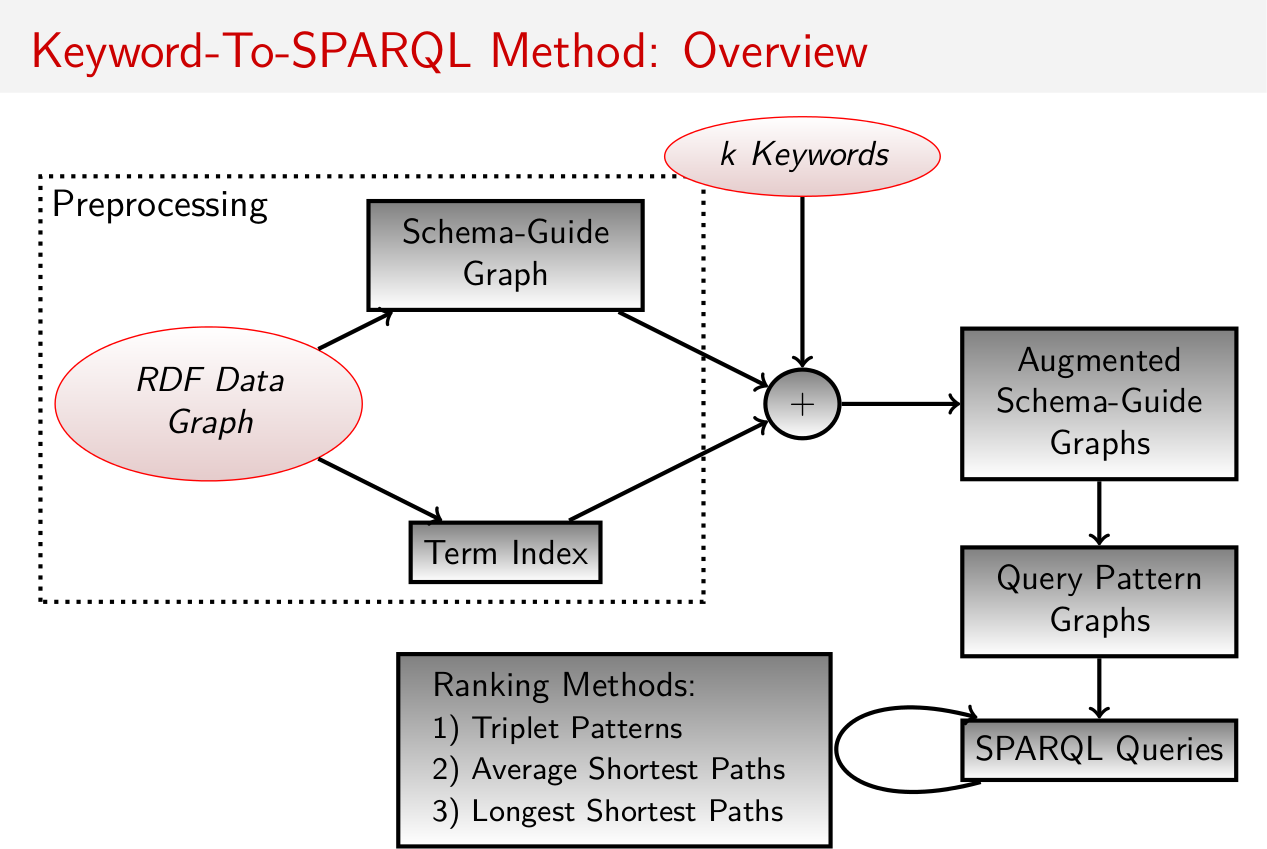Copyright notice:
The material is presented to ensure timely dissemination
of scholarly and technical work. Copyright and all rights
therein are retained by authors or by other copyright holders.
All persons copying this information are expected to
adhere to the terms and constraints invoked by each
copyright. In most cases, these works may not be
reposted without the explicit permission of the
copyright holder.
If you want a paper that is not available here,
or if you have any problems accessing these documents,
e-mail me.
Keywords-To-SPARQL exploration
Keywords-To-SPARQL exploration is a novel approach for
searching and exploring graph-structured data, in
particular RDF graph data, using keywords. Our method, instead
of providing answers directly from the RDF data graph,
generates automatically a set of candidate SPARQL
queries that try to capture users information need as
expressed by the keywords used. Our approach is tailored to
tempolar RDF data, i.e. RDF data that involve temporal
properties. To this end, our method is enriched with temporal
operators allowing the user to explore data within predefined
time ranges. To evaluate our approach, we perform an effectiveness
study using two real-world datasets.

Publications
-
RDF Keyword Search based on Keywords-To-SPARQL
Translation
Gkirtzou K., Papastefanatos G. and Dalamagas T.
Proceedings of the First International Workshop on Novel Web Search Interfaces and Systems (NWSearch), 2015 [bibtex] [doi] -
Keywords-To-SPARQL translation for RDF data search
and exploration.
Gkirtzou K., Karozos K., Vassalos V. and Dalamagas T.
19th International Conference on Theory and Practice of Digital Libraries (TPDL), 2015
[bibtex] [doi] -
RDF Resource Search and Exploration with LinkZoo.
Meimaris M., Alexiou G., Gkirtzou K., Papastefanatos G. and Dalamagas T.
4th International Conference on Data Management Technologies and Applications (DATA), 2015
[bibtex] [doi]
Code
Code will soon be available.Acknowledgement
This study has been supported by LODGOV project, Research Programme ARISTEIA (EXCELLENCE), General Secretariat for Research and Technology, Minist ry of Education, Greece and the European Regional Development Fund.

